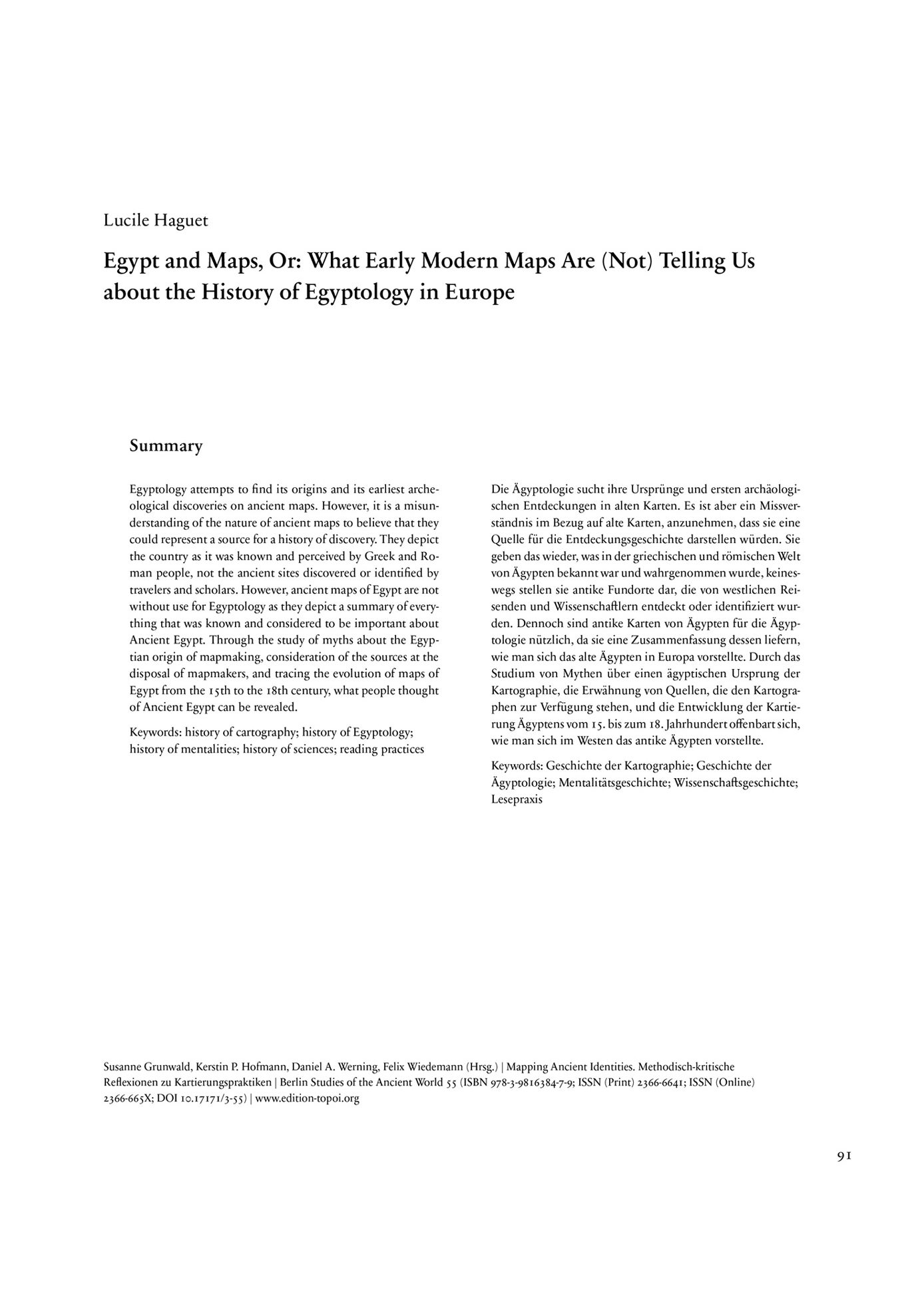Egypt and Maps, Or: What Early Modern Maps Are (Not) Telling Us about the History of Egyptology in Europe
Egyptology attempts to find its origins and its earliest archeological discoveries on ancient maps. However, it is a misunderstanding of the nature of ancient maps to believe that they could represent a source for a history of discovery. They depict the country as it was known and perceived by Greek and Roman people, not the ancient sites discovered or identified by travelers and scholars. However, ancient maps of Egypt are not without use for Egyptology as they depict a summary of everything that was known and considered to be important about Ancient Egypt. Through the study of myths about the Egyptian origin of mapmaking, consideration of the sources at the disposal of mapmakers, and tracing the evolution of maps of Egypt from the 15th to the 18th century, what people thought of Ancient Egypt can be revealed.
Die Ägyptologie sucht ihre Ursprünge und ersten archäologischen Entdeckungen in alten Karten. Es ist aber ein Missverständnis im Bezug auf alte Karten, anzunehmen, dass sie eine Quelle für die Entdeckungsgeschichte darstellen würden. Sie geben das wieder, was in der griechischen und römischen Welt von Ägypten bekannt war und wahrgenommen wurde, keineswegs stellen sie antike Fundorte dar, die von westlichen Reisenden und Wissenschaftlern entdeckt oder identifiziert wurden. Dennoch sind antike Karten von Ägypten für die Ägyptologie nützlich, da sie eine Zusammenfassung dessen liefern, wie man sich das alte Ägypten in Europa vorstellte. Durch das Studium von Mythen über einen ägyptischen Ursprung der Kartographie, die Erwähnung von Quellen, die den Kartographen zur Verfügung stehen, und die Entwicklung der Kartierung Ägyptens vom 15. bis zum 18. Jahrhundert offenbart sich, wie man sich im Westen das antike Ägypten vorstellte.

